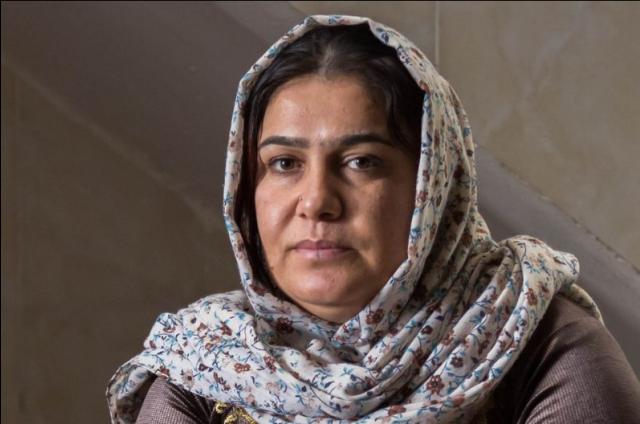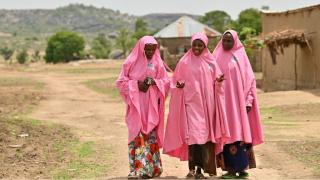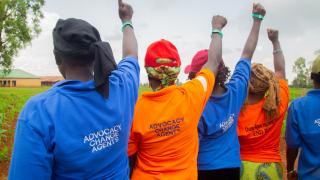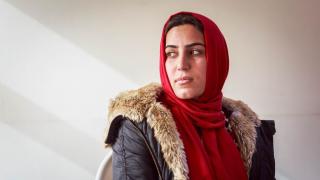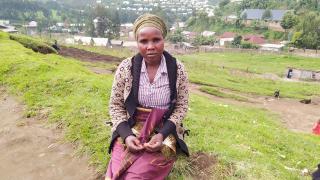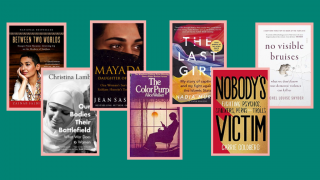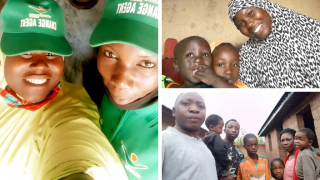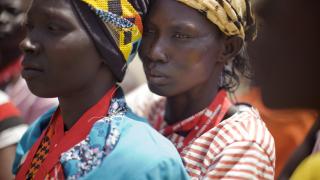16 Days of Activism Against Gender-Based Violence
1 in 3 Women experience sexual or physical violence in their lifetime
Source: WHO
16 Days of Activism Against Gender-Based Violence
96% of the 6,500 women we consulted in conflict zones reported facing some kind of violence
Source: From Asking to Action
16 Days of Activism
From Awareness to Action—Join the Global Stand Against Violence and Support Women’s Bravery Worldwide
Since 1991, 16 Days of Activism Against Gender-Based Violence takes place every year between 25th November (International Day for the Elimination of Violence against Women) and 10th December (Human Rights Day) to raise awareness of, and prevent violence against women and girls.
Violence against women and girls takes many forms, from harassment to intimate partner violence, to sexual violence being used as a weapon of war.
Women for Women International was established in 1993 to help survivors of sexual violence during the 1992 - 1995 conflict in Bosnia and Herzegovina, in the belief that stronger women build stronger nations. We continue to work with the most socially excluded women in countries affected by conflict across the world.
Through our From Asking to Action consultation we spoke to 6,500 women in 14 conflict affected countries. They shared:
5% Only 5% of Afghan women we spoke to feel safe participating in community activities
Source: From Asking To Action
96% of the women reported facing some kind of violence. 71% have experienced intimate partner violence
Source: From Asking to Action
75% 75% of women call for increased funding and resources, particularly for gender-sensitive aid
Source: From Asking to Action
Keep reading
From Asking To Action
subtitle:
We spoke to over 6,500 women in countries affected by conflict who are leading change in their communities. Now it's time to ensure their priorities are amplified and actually heard by decision-makers.
All women are vulnerable to violence – with one in three experiencing some form in their lifetime. But those in conflict-affected regions are much more exposed to it. Living in conflict zones, experiences war and suffering displacement all increase the risk.
Violence Against Women
subtitle:
Violence against women is one of the biggest blocks to the realisation of women’s rights. For the women we serve, gender-based violence is complex and often drives them further into isolation. We are working with the international community to understand what works to prevent violence against women.
Women’s lived experiences in the Democratic Republic of Congo expose what sexual violence in conflict truly looks like, and what we must do to end it.
Read these books that break the silence on violence against women. Help end this injustice by sharing the experiences of survivors and raising your voice.
Solange
subtitle:
There are many young girls who come from my village who are rape victims. When they come I try to encourage them, telling them "You still have life, one still has value." I tell them that they should hope for the future.
Grace and Hadiza are two brave women who are challenging norms and making their voices heard as they advocate for change in their communities in northern Nigeria. Using radio, they are helping women to speak up against gender-based violence and empowering them to get the medical and legal support . Graduates from the Stronger Women, Stronger Nations Programme, these two women are an example of what can be achieved when women believe in the #PowerToChange accepted norms.
Globally, one third of women (736 million) have experienced physical and/or sexual violence, especially in fragile and conflict-affected states. We spoke to women around the world about their attitudes towards violence against women. Read our policy briefs, highlighting community views and amplifying the experiences of the most marginalised.

